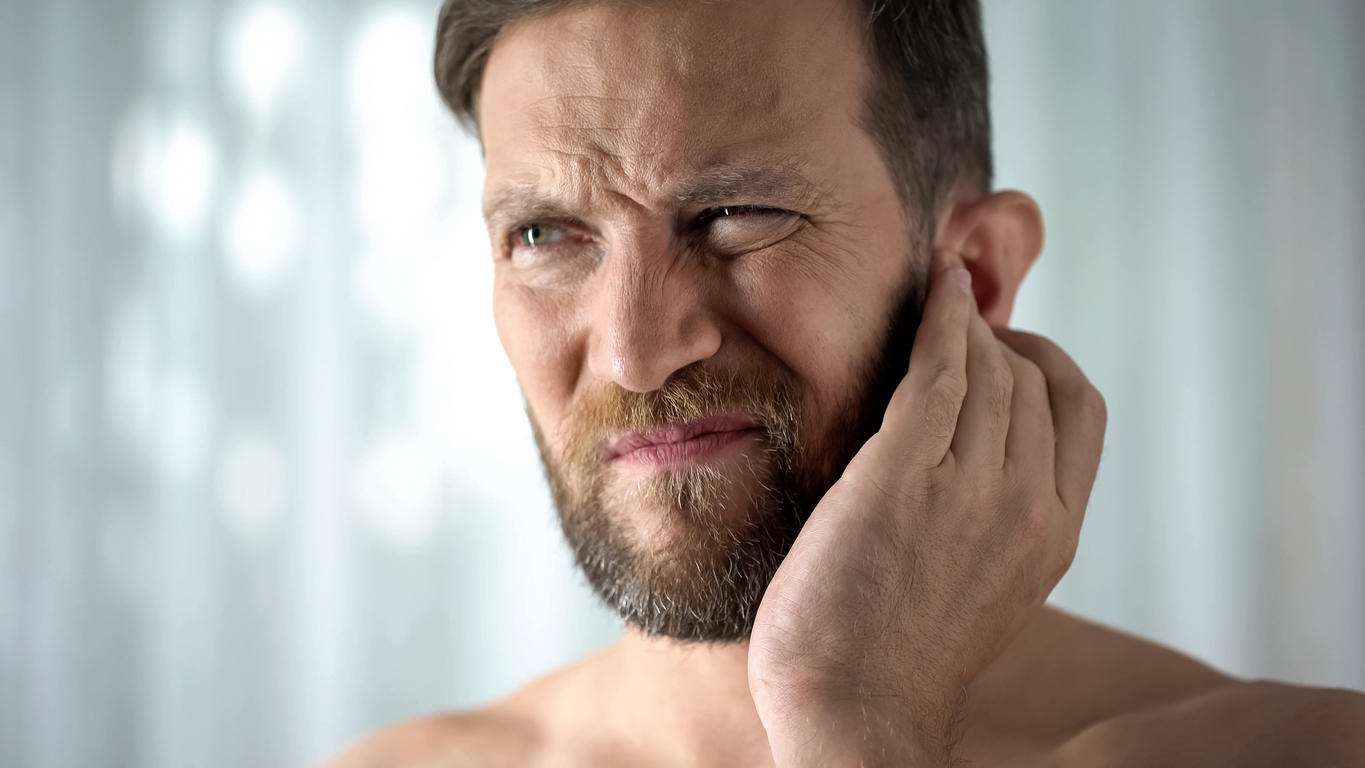Have you ever woken up in the middle of the night to debilitating ear pain and not known why? Perhaps you tried to clean out your ears, swallow a few times, or alleviate the pressure with a warm cloth. Ear pain is something we experience often as children, but it can still affect us in our adulthood. There are a number of reasons why one may experience ear pain: everything from a sinus congestion to an ear infection. Yes, sometimes ear pain is even caused by a build-up of earwax. Perhaps the most common contributor to ear pain, though, is allergies. Let’s take a closer look at allergy ear pain.
Allergies
Allergies occur because of a hypersensitivity to a particular substance. This substance varies for each person. It can be grass, pet dander, and pollen in the air. When our bodies react to this substance, our immune system is actually trying to protect us and releases histamines. Histamines are what we typically associate with allergies: the mucus, swelling, sneezing, and itching symptoms.
This follows suit with allergy ear pain. Many people forget that allergies can also affect the membrane lining in our ears as well. This lining can become inflamed when it reacts to an allergen, causing an imbalance in the ear due to the buildup of fluid. This can feel like your ears are blocked or can even cause ear pain.
Overall, allergies cause inflammation and congestion. So, when allergies are affecting your ears, they’re going to cause inflammation in the ear putting you at a higher risk for ear infection.
How Allergies Affect Ear Pain
Allergens can cause us to release histamines — the nasty buggers that cause inflammation. When this happens in the ear, the inflammation is occurring in the mucous membranes that line the ear. When this happens, your ears become blocked, thus preventing mucus from draining away, and eventually causing some buildup of pressure inside the ear.
This pressure inside the ear from buildup causes swelling and pain (earache) as it affects the eardrum — thus causing an infection.
Symptoms
Symptoms of an allergy-induced ear infection include difficulty or loss of balance, trouble hearing, ringing in the ears, and dizziness. The allergies may even cause short-term hearing loss but should resolve itself when the allergies subside.
Treatment
There are a number of ways to reduce allergy ear pain. At home, you can reduce pressure in the ear by sitting upright rather than laying down, icing your ear for 20 minutes at a time, placing a warm cloth on your ear for a few minutes at a time, chew gum or swallow often, or take ibuprofen.
If the pain doesn’t go away, you can also try taking some allergy medication prescribed by your doctor. Some options include:
- Cetirizine (Zyrtec)
- Chlorpheniramine (Chlor-Trimeton)
- Diphenhydramine (Benadryl)
- Fexofenadine (Allegra)
- Levocetirizine (Xyzal)
- Loratadine (Alavert, Claritin)
There are many different types of allergy medications out there so it’s best to talk with your doctor about the right one for you.
If you’re experiencing severe allergy ear pain, don’t hesitate to call an allergy specialist to clear away the pain. Allergies can be quite the nuisance and affect your everyday life, making it hard to complete basic tasks. Hearing is especially essential if you work in a profession that requires you to interact with others all day or with heavy or dangerous operating equipment. You don’t have to live with ear pain any long: call Dr. Shukla at 917-765-7469 or visit his website today to get your allergies cleared away.

